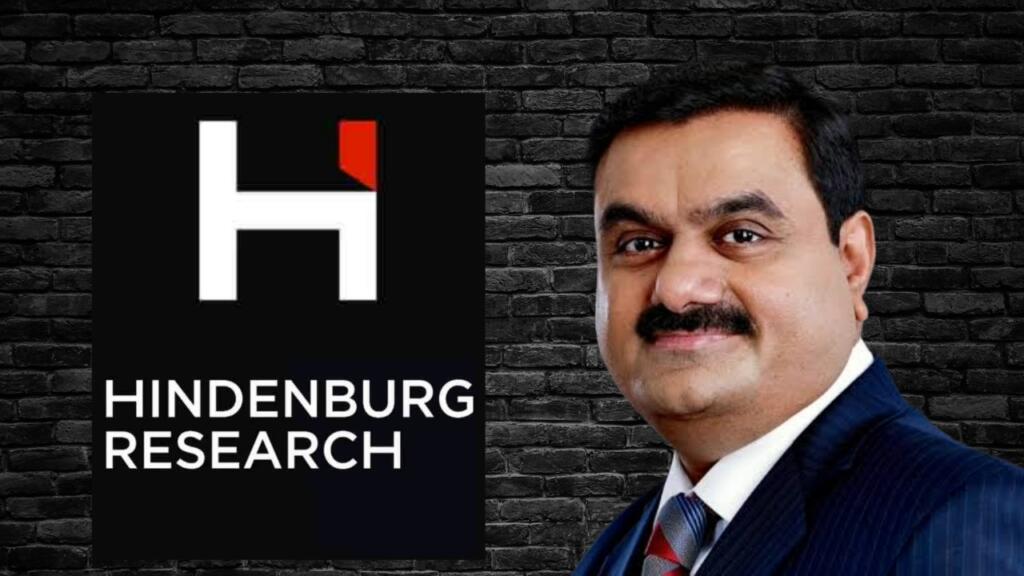Hindenburg Research has had a noteworthy year in the world of activist short sellers, especially with its accusations against the Adani Group, an organization run by Indian billionaire Gautam Adani. The claims, which first arose in January 2023, included stock manipulation and accounting fraud, which led to an astonishing $150 billion decline in market value. But a closer examination reveals the Adani Group’s incredible fortitude in the face of hardship.
The Hindenburg report caused political repercussions in addition to market volatility. The bogus report was quickly picked up by opposition parties, who used it as justification to criticise Prime Minister Narendra Modi and Adani alike. The problem took on a political dimension when an attempt was made to connect the Hindenburg accusations to a larger story against the government.
It’s interesting to remember that the Adani Group was in the midst of a Follow-on Public Offering (FPO) and Gautam Adani was the second-richest person in the world prior to the release of the Hindenburg report. The timing of the study and the way political opponents used it thereafter severely damaged Adani’s reputation and briefly undermined investor trust.
The Organised Crime and Corruption Reporting Project (OCCRP) study added to the difficulties by attempting to amplify the debate and cast further suspicion on the Adani Group’s business practices. Adani Group has persevered through these planned assaults and concentrated on reaffirming its dedication to expansion, openness, and sustainable operations.
Seven of the ten equities in the group are still down as of the most recent market close following Hindenburg’s damning assessment. The market capitalization of the Adani Group has recovered, approaching levels seen in late January, notwithstanding the early setbacks. Strategic actions that have helped restore investor trust, such as debt repayment and luring major firms like GQG Partners LLC, are responsible for this turnaround.
It is important to remember that there are many facets to market dynamics, and recoveries are not only dependent on disproving claims made by short sellers. The Adani Group’s capacity to make up ground highlights its dedication to open governance and calculated financial planning.
The Adani Group’s growth trajectory has not been impeded by the Hindenburg report. The company’s market worth has increased, and their debt-prepayment plan has attracted favourable notice. Even though Gautam Adani’s wealth dropped by almost $34 billion in 2023, the company didn’t waver and kept refuting Hindenburg’s accusations.
Likewise, there was significant blowback when Hindenburg accused Carl Icahn’s Icahn Enterprises of overvaluing its properties. The company has seen a decrease of around 70% since Hindenburg revealed their short call in May. This demonstrates even more the possible consequences that activist short seller reports may have on the corporations they target.
The story of Hindenburg and Adani is not the first time a short seller has gained attention. In the past, Hindenburg has effectively pursued businesses with differing degrees of market influence, including Nikola, Mullen Automotive, DraftKings, and Lordstown Motors.
The Adani Group is unique in that it can withstand adversity and come out stronger. The group’s proactive strategy, which includes enlisting well-known investors and putting strong financial plans in place, demonstrates a dedication to long-term sustainability. The Adani Group’s business model is characterized by durability and adaptation, as seen by the recent recovery in market value.
The financial scene has certainly been agitated by Hindenburg’s reports, but the Adani Group’s success story shows how adaptable Indian corporations can be when faced with difficulties. The rebound indicates that the foundation of a well-run, diverse company can survive criticism and set itself up for future growth, even in the face of transient market swings.
As a nation, we must ask ourselves if it was worthwhile for the political parties to attack an Indian conglomerate by choosing to rely on an outsider. Could it be that a great deal of short-term loss and value wiping for retail shareholders would not have happened if these people had trusted our own institutions, such as SEBI, the Supreme Court, and other bodies? Or was that the whole point? We could never find out.
